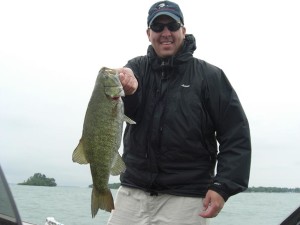We have much more to do and your continued support is needed now more than ever.
The Current Battle For Lake Erie

Some 200 years later – the new front for the battle of Lake Erie is now in the Ohio General Assembly.
Yesterday, the Ohio House passed a bill House Bill 473 that leaves Lake Erie and its tributaries unprotected and blocks the rights of Ohio’s hunters and anglers to use Lake Erie
HB 473 is legislation to implement the Great Lakes Compact.
Lake Erie is Worth Fighting For
Just like in 1812 – Ohio is blessed to have Lake Erie. It supplies the state with more than $10 billion in economic revenue each year and more than a quarter of a million jobs resulting from recreational and commercial fishing, hunting, wildlife watching, tourism and travel.
Its tributaries, such as the Grand, Vermillion and the Chagrin, provide world class steelhead fishing opportunities and is commonly referred to as ‘steelhead alley’. Other tributaries, such as the Maumee River, are also the spawning grounds for walleye and smallmouth bass. It also supplies drinking water to 11 million people across the area, 3 million of whom live in Ohio.
In other words, Lake Erie and its tributaries truly make Ohio special – and deserve protection.
House Bill 473 is the second attempt to pass legislation to implement the Great Lakes

Lake Erie Tributaries Left Unprotected
HB 473 restricts the Ohio Department of Natural Resources to only assess the impact of water withdrawals on Lake Erie – not the source of the withdrawal. Not only does this conflict with the Great Lakes Compact – which includes a preference for direct tributaries – it defies science and common sense. How are we to know the real impact of a water withdrawal if you don’t analyze its impact to the source of the withdrawal?
No doubt this will have dramatic impacts on ‘steelhead alley’ and potentially add to the growing problem of algal blooms in the western basin of Lake Erie.
Blocks Hunters and Anglers Rights to Lake Erie
The Great Lakes Compact states that any “Person aggrieved by a Party action shall be entitled to a hearing” in accordance with each state’s administrative procedures and laws. It further provides that, “after exhaustion of such administration remedies…any aggrieved Person shall have the right to judicial review of a Party’s action in the relevant Party’s court of competent jurisdiction.”
Yet, House Bill 473 changes the definition of ‘aggrieved persons’ by limiting it to those who were issued a permit, or those who have a direct economic or property interest impacted by a withdrawal. This narrow definition of aggrieved person would take a step backward and essentially eliminate Ohio’s citizen’s rights to enjoy and recreate in Ohio’s Lake Erie Basin.
“Dont Give Up the Ship!”
Back in 1812, America and the people of Ohio recognized Lake Erie was certainly worth fighting for. We must not forget the famous dying command of American Naval Officer, Captain James Lawrence, during the War of 1812, “don’t give up the ship!”
Today, we must remain vigilant and continue to fight for Lake Erie. As this bill moves forward, it is our hope the Ohio Senate and Governor Kasich will remember the rally cry of Captain Lawrence and honestly evaluate whether or not this bill is consistent with the Great Lakes Compact and protects Lake Erie.
The current Battle for Lake Erie is vital to the health of Ohio’s wildlife and economy.




















